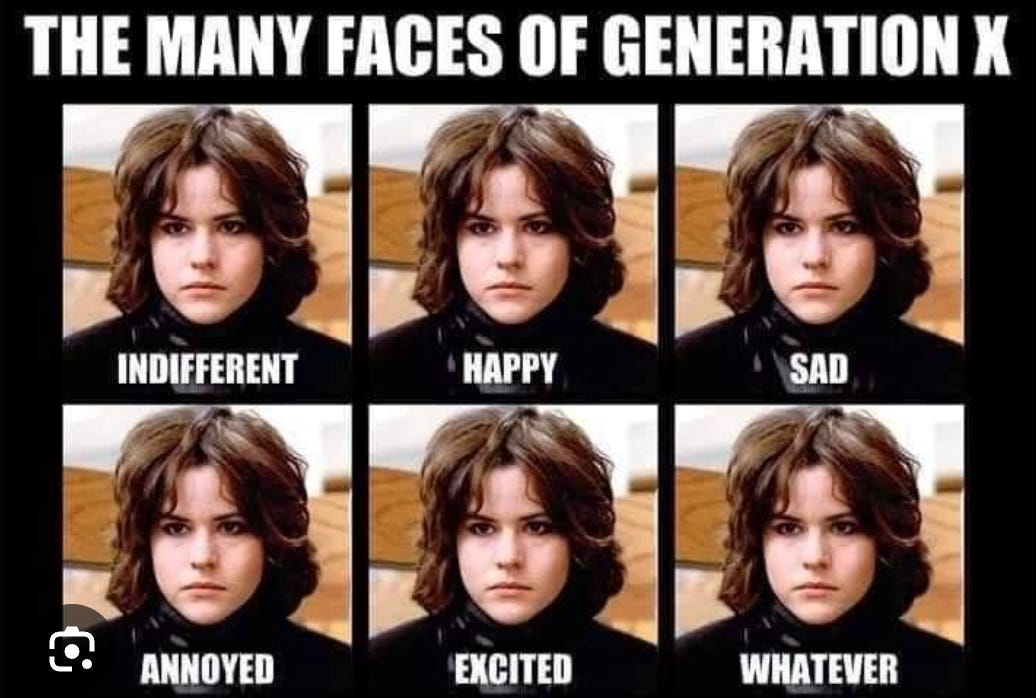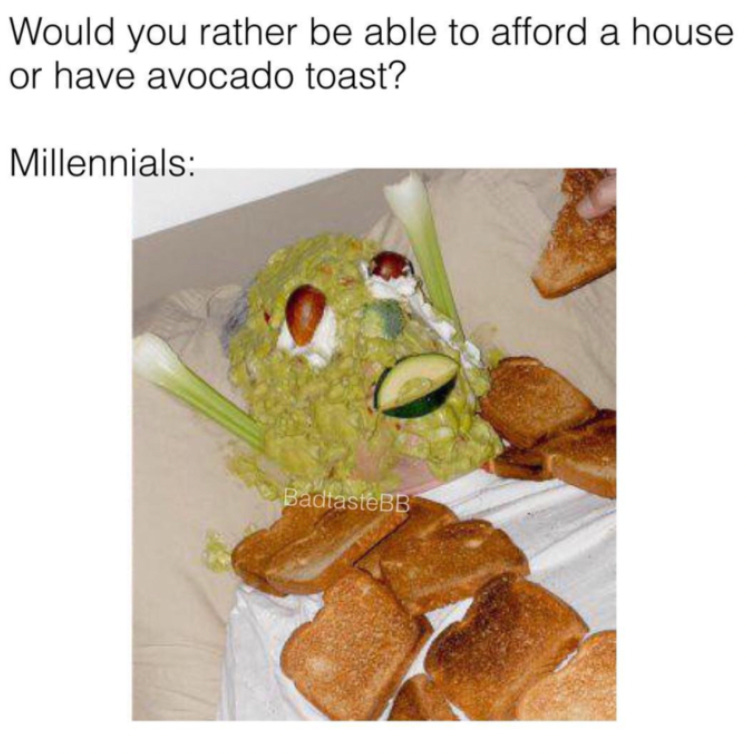Are you a victim of generational dieting trauma?
So many of us carry the weight of inherited food rules and body shame - without even realising it...
TW: Diets, eating disorders and more…
There’s so much vile, limiting vernacular around summer bodies. Just this week a friend said she was scared to ‘get her arms out’ ahead of the warmer weather. As if these vampiric arms had never felt a ray of daylight and would shrink away at even the faintest hint of sun. The way she said it echoed how many of us still talk - words steeped in body shame passed down from decades past.
There’s so much BS about bodies, who is allowed to enjoy summer, and who isn’t. I felt that first-hand; summers had always been a source of stress for me and despite the diets/eating disorders, I never felt like I was good enough to enjoy the warm weather.
So I think the start of summer is timely to republish an early substack on how we inherit trauma around bodies and diets. And I’d love to know if it resonates with you, like it did for me.
Much love (and all your frozen drinks of choice)
A few months ago on a burnout break at a wellness retreat, I lay on a sun lounger willing my mind to stop whirring. The woman next to me struck up a conversation and we spoke about the hotel, the baking heat and the quality of the cocktails (excellent, if not a tad heavy on the rum.) As the waiter came around offering bowls of nachos to snack on, she refused them quite dramatically and followed this with a monologue about how she “couldn’t wear a bikini until she was a certain weight.” And this was despite her being conventionally slim, with the archetypal ‘bikini body.’
Her comment struck me as odd and a old fashioned. Truthfully, I did feel a little fat shamed too - I was at least three sizes bigger than her, and had been toying with trying a bikini myself one day. On the same holiday a woman in her late fifties who became part of our ‘retreat gang’ took a picture of a plus-sized man who had fallen asleep in the sun. He had a book resting on his stomach, which she seemed to find hilarious and showed several of us the image expecting us to laugh along with her, but nobody did. Finally, one evening at dinner I heard a woman in her thirties wrestle with what seemed to be an unyielding decision and after aeons, she finally replied to the waiter: “Nope, no dessert for me…I had breakfast today.” She looked relived to have won this internal boxing match, with porridge stationed in one corner and a forlorn-looking pudding in the other.
These attitudes felt so out of date and jarring to me, living in our post-body positivity world and having excluded any kind of diet culture from my social media feeds for years now. But they were also a stark reminder that despite the progress that’s been made with anti-diet culture and size inclusivity, there are vast swathes of people that body positivity hasn’t reached, who are still gripping onto the narratives that diet culture and fat phobia have left behind.
How do we learn to fear fat?
There was a time when we ate because we were hungry. Our childlike cries would signal our need for food, and then we’d be fed, stopping when full. But somewhere along the line this changed and we learned that we should restrict our food intake, count our calories and carbs, measure portions and ‘watch what we’re eating’, rather than y’know, actually eating it. Most often that somewhere is our childhood homes.
Do you remember a time you were told you were eating too much? Maybe there was concern about your size or weight? Sometimes the influences are less obvious; perhaps you watched somebody in your family restrict what they ate in some way? Children develop by mimicking their parents and older siblings' behaviour which can imprint both conscious and subconscious values around body size and what foods are ‘good’ or ‘bad’.
I have a friend whose mother would eat so strictly ‘for her health’ that now we’d likely say she displayed orthorexic behaviours. Another friend’s mum still comments negatively on anyone’s weight gain, and nobody is immune; celebrities, passers by - her own daughter! One friend’s mother would routinely give her brother much bigger portions because he was a ‘growing lad’ and was told if she asked for more food, that it wasn’t ladylike to eat too much. (This isn’t mother shaming at all btw, it’s because diet culture has largely been directed at women.)
In some cultures commenting on body size is a routine follow-on from ‘hello, how are you?’ In my Indian culture, if you're too fat and you’re told you resemble a laddu, but if you’ve lost weight then a samosa is shoved in your face - how do you win?
Maybe you never do.
Don’t blame the Boomers…
Perhaps it is finally worth asking ourselves; what beliefs around eating and body size did we inherit from our families and what could we be passing on to the next generation?
Despite my initial desire to call out those comments I heard on holiday in a fairly anger-fuelled and slightly self righteous way, I did have to catch myself and remember that this isn’t personal; it’s generational. And each generation has been inflicted with it’s own set of toxic diet narratives and fat-phobic conditioning that many - myself included at times - still grapple with. Getting past it isn’t as easy as social media’s suggestions to ‘just love yourself boo,’ so here’s a brief insight into the cumulative diet traumas some of our living generations have faced…
Meet the Baby Boomers: born approximately 1946 – 1964
When scientific research found a correlation between high fat diets and high cholesterol levels the ‘low fat diet’ was born. It was backed by governments, scientists and of course, by the burgeoning diet industry - despite there being no evidence for the diet preventing heart disease and that society was getting bigger whilst on a low fat diet, than off it. Boomers were essentially born during the rise of modern diet culture - not fun.There’s long been a link between ‘thinness and morality’ that has pretty bleak colonial origins (check out my book to read more on that) but it was really hammered into this generation; fat was gluttonous and lazy and being thin was winning at life. So much pop culture from the time was openly fat phobic; in one episode of I Love Lucy (1951-1957) called ‘The Diet’, Lucy goes on a fat shaming spree before realising she’s 20 pounds heavier than she initially thought. So, naturally, it’s so bad she threatens to kill herself. Boomer Liz Hurley who touted her post-natal ‘6 raisins a day diet’ with pride, also famously said she’d: “Kill herself if she was as fat as Marilyn Monroe.” (I think Marilyn would probably kill herself if she was as terrible an actor as Liz, but maybe I’m just being salty…)
Enter Generation X: born approximately 1965 – 1980
This was the generation who - off the back of all of the above - faced the pressure to look like the newly anointed ‘supermodels’ of the era. Diets became more extreme and advocated replacing your meals with drinks like Slim Fast and The Cambridge Diet (more on how the latter literally made me terrified of food some other time.) Now, It wasn’t just about being slender, it was about being toned too and the fitness industry made working out both commonplace and a badge of honour. Meanwhile, magazines were airbrushing women beyond recognition and skinny (with big boobs) was sexy; a study showed that 70% of Playboy playmates in the 1980s were underweight.
This generation bore the brunt of the anti-ageing industry boom, were handed the previous generation’s dieting obsession and also had to contend with the bullshit of their own generation's fat phobic culture. Again, pop culture mirrored these values; in the film What’s Eating Gilbert Grape (1993) after Gilbert's father commits suicide, his mother is understandably depressed. She gains weight and becomes a recluse because she thinks people will mock her size - and even her own son makes fun of her, so it’s not like she’s being paranoid here. Then when she dies, her kids actually burn her body at home in order to save her from being ridiculed at her own funeral. Wow, just wow…
Millennials: Born approximately 1980 – 1995
I am genuinely shocked when I meet a millennial woman (particularly geriatric millennials like me who were more heavily influenced by Gen x culture) who has a healthy relationship to their body size and eating. That’s both sad and indicative of how brutal it was to grow up in this era. Lest we forget, you could barely buy plus size clothes back then, Kate ‘nothing tastes as good as skinny feels’ Moss was the ultimate body pin up, size zero and thigh gap became aspirational, and magazines, celebrity culture and the internet loved pointing out the flaws in female celebrities bodies with a red ring of shame.
Fat shaming was absolutely the norm; Friends, Sex and The City, America's Next Top Model, Fat Families, Supersize Vs Superskinny, you name it, fat people were there as the butt of jokes or fodder for improvement. Fat shaming even became its own film genre; enter Shallow Hal, Norbit, The Nutty Professor and even Bridget Jones. When you weren’t doing the Master Cleanse diet, you could do extreme workouts like Insanity, then whip up some cauliflower rice and bone broth as the lines between diet and cook books became blurred. We spent a lot of time snaffling Special K too, because Kellog’s somehow managed to convince generations of women that if they just replaced one meal with a bowl of their cereal, they’d all be thin. Marketing genius, when you think about it.
Where does that leave us now?
I do think we need a certain gentleness and understanding when challenging other generations' beliefs about dieting and body size - but that doesn’t mean we shouldn’t challenge them.
There’s been a noticeable drop in plus size models featured during the last two seasons of Fashion Week. There’s also been a rise in pro-diet culture op-eds of late, like this one entitled ‘I’m fat so why aren’t I allowed to say I’m unhappy with my body?’ We’re all allowed individual choice and freedom of speech of course, but we also need to be mindful of projecting our own internalised fat phobia outwards; the kind that would have us label our own bodies ‘repulsive’ (as the above feature says) for being bigger than the beauty norm. Or the kind that drives us to exonerate diet culture publicly - perhaps because we want our own dieting behaviours corroborated by others, when the world is changing. For many body positivity still jars with the beliefs around diet culture and thinness they had instilled in them from a young age and to rethink everything you once believed in and may have based your own value on, is completely destabilising.
Envy courses through me when I see Gen Z wearing the clothes that I was made to feel I was too fat for, but I am grateful that body positivity has allowed younger generations the gift we all deserved, to enjoy life without being defined by our dress size or scale weight. It might not be all plain sailing now, Gen Z has plenty to contend with, from diet culture rebranding itself as wellness (what is Keto if not a modern Atkins?) to the normalisation of cosmetic surgery and unrelenting effects of social media.
But I’m hoping for this one change; that when they’re hungry, their first instinct is to just eat something, rather than thinking they should ‘have a glass of water’ instead.










Born in 1965, I should have been strongly influenced by many of these fads, diets and beliefs. However, I was fortunate enough to have a Mum that ignored all of the above. I don’t know why or how she did it and sadly, I can’t ask her as she’s no longer with us. I grew up seeing my Mum eat normally, cook daily and never comment negatively about my or anyone else’s body.
I consider myself truly fortunate to have missed the worst of diet culture. That doesn’t mean I didn’t inflict some of it on myself over the years but somehow it didn’t get deep inside.
I have so very many feelings about diet culture generally, and really struggle to articulate most of them. Next time I need to I will be pointing people to this article.
Thank you for finding the words.